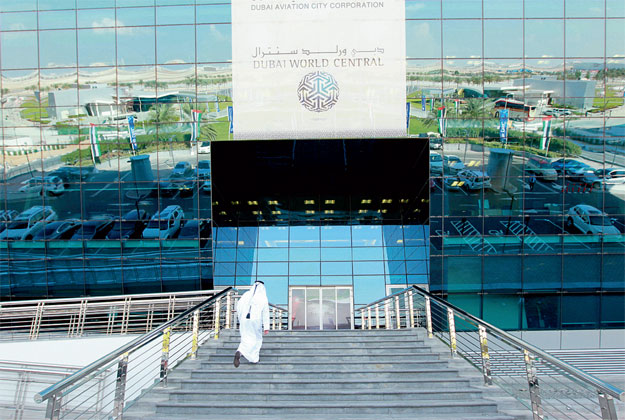
Dubai, Sep 18: The futuristic Dubai World Central Al Maktoum International Airport, envisioned to be the world’s largest airport complex when fully completed, is set to open for passenger flights next month following the certification for operation of its new passenger terminal.
The General Civil Aviation Authority, or GCAA, the sole regulator of all licenced airfields within the UAE, has certified Al Maktoum International for passenger operations after assessing and confirming full compliance of the aerodrome with its stringent requirements.
Dubai Airports, the company that operates the emirate’s two airports, said on Tuesday that the certification paved the way for a successful opening of the new passenger terminal building on October 27. It is designed to accommodate up to seven million passengers per year.
When completed, DWC will be the largest airport in the world with five runways and capacity for 160 million passengers and 12 million tonnes of cargo.
Saudi Arabia’s Nas Air and Hungary’s Wizz Air are expected to kick off operations at the new facility. The airport eventually expects to welcome Emirates airline in the mid-2020s.
The GCAA’s Air Navigation and Aerodrome department said in its letter that it accepted the implementation process for full passenger operations at the new airport and acknowledged the “hard work and commitment of Dubai Airports in achieving the status of full aerodrome operations”.
“Regulatory oversight is managed through the close cooperation of Dubai Airports Airside Operations staff who work closely with the GCAA to ensure that all aspects of operations at both DXB and DWC are fully compliant with the highest professional international standards and regulations set out in federal law,” Dubai Airports said in a statement.
“This is a welcome and critical step forward in the process of preparing DWC for full passenger operations,” said Jamal Zaal, vice-president of Airside Operations at Dubai Airports.
“We will continue to press ahead with trials that test every system, process and piece of equipment in the new terminal, be it signage, gates or boarding procedures to make sure the new facility is ready to accept passengers on October 27.”
Facility preparations culminate in advanced passenger trails on October 12, when some 1,000 members of the travelling public will test the full passenger journey through the new terminal to identify any areas for improvement before its doors open for business, the statement said. An advanced passenger trial using employees will take place in early October as a dress rehearsal for the public trials.
Dubai Airports experienced overwhelming support from volunteers in its trial recruitment campaign and was oversubscribed within the first 48 hours.
“As was the case with Concourse A trials last year, the support from volunteers has been tremendous which only goes to prove that in Dubai, people are passionate about aviation,” said Paul Griffiths, chief executive officer of Dubai Airports.
Dubai Airports is even considering whether to increase the capacity of Al Maktoum International Airport to 200 million passengers per year. Griffiths was quoted in an interview recently as saying that it was likely that Dubai would build an airport capable of handing up to 200 million passengers. “Ultimately, we want to create the world’s largest airport, and we’re looking at the design capacity.”
The world’s current busiest airport is Hartsfield Jackson Atlanta International Airport in the US, which handles around 89 million passengers a year.
Dubai Airports is currently working on a 2045 master plan to help manage the expected growth of the emirate’s two facilities.
The emirate’s first airport, Dubai International Airport, is undergoing a $7.8 billion expansion plan to boost its capacity to around 100 million by 2020.
The airport is projected to become the world’s busiest in terms of international traffic at some point in 2015, overtaking London Heathrow. Cargo operations at Al Maktoum International Airport started in 2010. During the first six months of 2013, air movements rose 37 per cent to 10,237, up from 7,474 movements in the first half of 2012. For the second quarter of 2013 air movements rose 35.4 per cent to 6,133, up from 3,961 in the three months to June 2012.








Comments
Add new comment